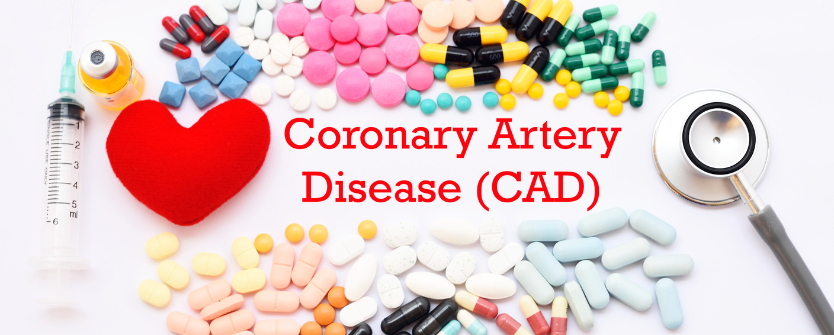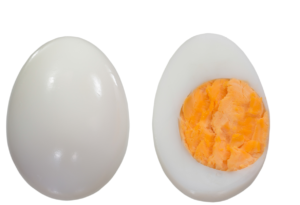Coronary Artery Disease (CAD) is when the arteries supplying blood to the heart become narrow or blocked. A healthy diet can significantly help manage this condition and improve heart health. Let’s explore the foods that can help support a healthy heart and those you should limit to prevent complications.
Understanding Coronary Artery Disease
Coronary Artery Disease develops when fatty deposits build up in the arteries, reducing blood flow to the heart. Poor lifestyle choices, including an unhealthy diet, are key contributors to this disease. However, by adopting a heart-friendly diet, you can protect your heart and reduce the risk of CAD.
Foods to Eat for Coronary Artery Disease
Eating the right foods can improve heart function and reduce plaque buildup. Here are some essential food groups to include in your daily meals:
Fruits and Vegetables
Fruits and vegetables are rich in vitamins, minerals, and antioxidants, which are excellent for maintaining a healthy heart. They also help reduce inflammation and support healthy blood flow.
- Examples: Berries, oranges, apples, spinach, and kale.
- Benefits: They lower cholesterol levels and reduce blood pressure, which is critical for heart health.
Whole Grains
Whole grains are a good source of fiber, which helps manage cholesterol levels and prevent artery clogging.
- Examples: Oats, brown rice, whole wheat bread, and quinoa.
- Benefits: Whole grains promote heart health by improving digestion and reducing bad cholesterol (LDL) levels.
Healthy Fats
Not all fats are bad. Healthy fats, particularly omega-3 fatty acids, are known for their heart-protective benefits.
- Examples: Fatty fish (salmon, mackerel), flaxseeds, walnuts, and avocados.
- Benefits: These fats help lower triglycerides and reduce inflammation in the arteries.
Lean Proteins
Protein is essential for overall body function, and lean protein sources are ideal for those with Coronary Artery Disease.
- Examples: Skinless chicken, turkey, beans, lentils, and tofu.
- Benefits: They provide the necessary nutrients without adding harmful saturated fats.
Nuts and Seeds
Nuts and seeds are rich in healthy fats, fiber, and protein, making them great snacks for maintaining a heart-healthy diet.
- Examples: Almonds, chia seeds, and sunflower seeds.
- Benefits: Regular consumption of nuts and seeds can lower bad cholesterol and improve artery function.

Foods to Avoid for Coronary Artery Disease
Some foods can increase the risk of developing Coronary Artery Disease by contributing to plaque buildup in the arteries. To protect your heart, it’s essential to limit or avoid these foods:
Processed and Sugary Foods
Highly processed foods and sugary treats are often loaded with unhealthy fats, sugar, and salt, which raise cholesterol and increase blood pressure.
- Examples: Pastries, cakes, soda, and packaged snacks.
- Risks: Excess sugar leads to weight gain, increasing the strain on your heart.
Saturated and Trans Fats
These fats are known for raising bad cholesterol (LDL) and lowering good cholesterol (HDL), leading to plaque buildup in the arteries.
- Examples: Red meat, butter, full-fat dairy products, and fried foods.
- Risks: Saturated and trans fats are harmful to heart health and can accelerate the progression of Coronary Artery Disease.
Salty Foods
Excess salt in the diet can increase blood pressure, putting more strain on the heart and arteries.
- Examples: Canned soups, processed meats, and fast food.
- Risks: High salt intake is directly linked to hypertension, a major risk factor for CAD.
Refined Carbohydrates
Refined carbs cause spikes in blood sugar levels, contributing to weight gain and insulin resistance and negatively affecting heart health.
- Examples: White bread, white rice, and sugary cereals.
- Risks: These foods lack essential nutrients and contribute to plaque buildup in the arteries.
- Alcohol
While moderate alcohol consumption might have some heart benefits, excessive drinking can lead to high blood pressure, obesity, and irregular heartbeats.
- Risks: Alcohol can increase the risk of heart disease if consumed in large quantities.
Tips for a Heart-Healthy Lifestyle
In addition to dietary changes, adopting a heart-healthy lifestyle can make a significant difference in managing Coronary Artery Disease:
- Stay Active: Regular exercise, such as walking, swimming, or cycling, improves heart function and circulation.
- Quit Smoking: Smoking is a major risk factor for CAD. Quitting can greatly improve heart health.
- Manage Stress: Chronic stress can negatively affect your heart, so try relaxation techniques like meditation or yoga.
- Maintain a Healthy Weight: Achieving and maintaining a healthy weight reduces the strain on your heart and helps manage cholesterol levels.
Also Read: Essential Skincare Tips for a Glowing Complexion
Conclusion
Managing Coronary Artery Disease with a balanced weight loss plan rich in results, greens, entire grains, and lean proteins can drastically enhance heart fitness. Avoiding processed foods, saturated fats, and immoderate salt is crucial for defending your arteries. By making those simple dietary changes and incorporating healthful lifestyle conduct, you can reduce the threat of complications and help ordinary cardiovascular health.













